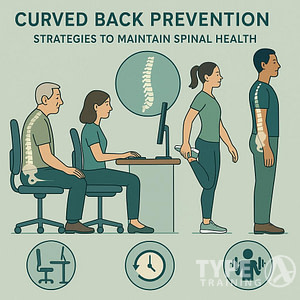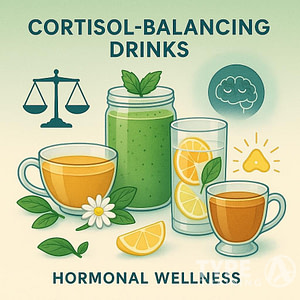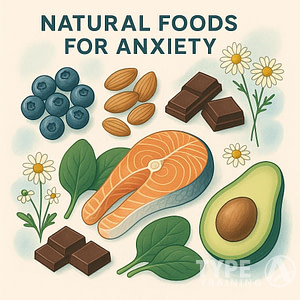For centuries, coffee and tea have been staple beverages around the world, each with distinct flavors and traditions. While both drinks offer a range of health benefits, the debate on which is better for your health continues to be a hot topic.
Coffee enthusiasts often cite its high antioxidant content and energy-boosting properties as major perks. Its caffeine boosts alertness and may even improve mental focus and performance.
On the other hand, tea provides a more subtle energy lift, along with an abundance of antioxidants and potential heart health advantages. Green tea, in particular, is celebrated for its metabolism-boosting properties.
Popular posts:
Your ultimate choice may boil down to personal preference and specific health goals.
If you’re seeking a quick energy jolt and improved cognitive function, coffee might appeal to you.
Meanwhile, if a gentle lift with added health benefits is more your style, a cup of tea might be your perfect companion.
Each beverage offers something distinct, making them both worthy of a place in your diet.
Key Takeaways
- Coffee and tea offer distinct health benefits tailored to different needs.
- The caffeine in coffee boosts energy and focus; tea provides a subtler lift.
- Your choice depends on personal health goals and preferences.
Understanding Coffee and Tea
Coffee and tea hold a prominent place in cultural and daily practices around the world, each presenting unique origins and wide-ranging varieties. They offer distinct preparation methods and are consumed for both taste and potential health benefits.
Origins and Popularity
Coffee originated in Ethiopia and gained popularity across the Arabian Peninsula before moving to Europe and the rest of the world. Tea primarily comes from the leaves of the Camellia sinensis plant and has ancient roots in China.
Over the centuries, both beverages have become staples in various cultures.
Coffee houses played significant roles in social and political discussions. Meanwhile, the tea trade had considerable economic impact, particularly in Asia and Europe. Your choice between coffee and tea often depends on cultural influences and personal preferences.
Key Varieties
Coffee comes in two main types: Arabica and Robusta, each with distinct characteristics. Arabica, known for its smoother flavor, is more widespread. Meanwhile, Robusta has more caffeine and a stronger taste. Brewing methods like espresso concentrate the caffeine content.
Tea varieties include black, green, white, and herbal. Black tea contains theaflavins and thearubigins, while green tea is rich in catechins like epigallocatechin gallate (EGCG). White tea is less processed, preserving more antioxidants. Herbal teas offer flavors without caffeine.
Both beverages boast beneficial compounds. Coffee is known for antioxidants like chlorogenic acid, and many teas provide polyphenols and the calming amino acid L-theanine.
Preparation and Consumption
Coffee is enjoyed in several forms, from brewed coffee to espresso. Brewed coffee is versatile and adjusts in strength and flavor. Meanwhile, espresso, a more concentrated form, is often used as a base for drinks like lattes.
Tea preparation varies significantly. Green tea and matcha require specific water temperatures to preserve flavor and nutrients. Black tea is often brewed longer to develop stronger flavors. Herbal teas are typically steeped to extract their unique flavors.
Consumption rates and preparation techniques differ globally, influenced by traditions and available resources.
Whether you prefer your beverage hot or iced, both coffee and tea are integral parts of social rituals and personal routines worldwide.
Health Benefits Compared
In comparing coffee and tea, both offer distinct health benefits such as antioxidant properties, mental alertness, and protection against chronic diseases. Your preference might depend on specific health goals rather than an overall winner.
Antioxidant Effects
Both coffee and tea are rich in antioxidants. Coffee primarily contains chlorogenic acid, which is known for its role in reducing oxidative stress and protecting against DNA damage.
Alternatively, tea, especially green tea, is high in catechins, which help to combat free radicals.
You benefit from antioxidants as they can reduce inflammation and support heart health. While tea is often associated with cancer-fighting properties, coffee offers a robust antioxidant punch that can be beneficial for overall health.
Cognitive and Mental Health
Caffeine, found in both beverages, is a significant contributor to mental alertness and reducing mental fatigue.
However, coffee generally contains more caffeine, providing a stronger energy boost.
Tea, especially green tea, is associated with a reduction in stress and anxiety due to the presence of the amino acid L-theanine. This can improve mood and reduce the risk of insomnia when consumed in moderation.
Both drinks show potential in lowering the risk of dementia and other age-related cognitive declines, making them beneficial for cognitive health.
Physical Health Advantages
Coffee has been linked to enhanced athletic performance due to its caffeine content, making it a popular choice for pre-workout drinks. It can also aid in weight loss by boosting metabolism.
Tea, particularly green tea, is praised for its ability to aid in digestion and contribute to weight management.
Each drink offers distinct physical health benefits, allowing you to choose based on your personal health objectives and lifestyle.
Chronic Disease Impacts
Drinking coffee regularly has been associated with a lower risk of type 2 diabetes and certain chronic diseases. It may also reduce the risk of heart disease and stroke. Additionally, coffee drinkers seem to have a reduced incidence of Parkinson’s disease.
Tea is renowned for its heart health benefits, potentially lowering the risk of heart disease and helping to manage cholesterol levels. It may offer protective benefits against developing cancer.
Both beverages play a role in chronic disease prevention, with tea being more heart-focused and coffee dealing with metabolic conditions.
Caffeine and Its Effects
Caffeine, a natural stimulant found in coffee and tea, is known for providing an energy boost. It can improve concentration and alertness, but excessive consumption may lead to health concerns.
Pros and Cons of Caffeine Intake
Caffeine is a popular choice for those seeking increased alertness and focus. A moderate intake can enhance cognitive performance and mood, making activities such as studying or working more efficient. Many rely on caffeine for a quick energy boost to combat fatigue.
However, consuming too much caffeine may result in adverse effects. Common issues include heart palpitations, migraines, and anxiety. Some individuals experience restlessness or jitteriness.
Monitoring your caffeine intake is crucial to avoid these potential drawbacks.
Caffeine and Health Issues
Excessive caffeine consumption can contribute to health problems. Insomnia is a frequent concern, as caffeine can disrupt sleep patterns if consumed later in the day. It may also elevate
Caffeine’s role in heart palpitations should not be overlooked. For those with anxiety disorders, caffeine might exacerbate symptoms.
Assessing your tolerance and adjusting intake accordingly can help manage these issues effectively.
Being mindful of caffeine content in various food and drinks ensures you stay within safe limits and protect your health.
Nutritional Content and Considerations
Both coffee and tea provide a range of nutrients and health effects. This section reviews their macronutrient and micronutrient profiles, alongside potential health risks.
An Analysis of Macronutrients and Micronutrients
Coffee is low in calories, with negligible proteins and fats unless additives like cream or sugar are used. It is known for its antioxidants, such as chlorogenic acid, which may positively influence metabolism.
Tea offers epigallocatechin gallate (EGCG), especially in green and white varieties, which might support weight management. It contains polyphenols that help reduce inflammation. Black tea may have more caffeine than green tea, affecting metabolism.
Both beverages contain trace minerals but vary in content due to different plant sources and processing methods. Essential micronutrients include potassium and magnesium.
Making choices based on these contents can ensure you get the desired health benefits.
Potential Risks and Side Effects
Moderate consumption of coffee and tea is generally safe, but excessive intake poses risks. High caffeine levels can lead to insomnia, increased heart rate, and anxiety, which vary in sensitivity among individuals.
Coffee may raise bad cholesterol (LDL) levels when not filtered. In contrast, tea’s fluoride content can lead to osteofluorosis if consumed in high quantities over extended periods. Both drinks can stain teeth, affecting dental health.
People with diabetes should monitor coffee and sweetened tea intake due to possible impacts on blood sugar.
Being mindful of these factors ensures you enjoy these beverages while minimizing adverse effects.
Emerging Research and Insights
Recent studies shed light on how coffee and tea may impact health, particularly concerning diseases like cancer and dementia. These insights are crucial for understanding the potential health benefits and drawbacks of each beverage.
New Findings on Tea and Coffee
Recent research highlights how drinking tea and coffee may affect brain health and cancer risk.
Tea has been associated with a lower risk of dementia due to its high content of antioxidants like catechins.
Similarly, coffee’s consumption is linked to a reduced risk of several cancers, including liver and colorectal cancer, possibly due to its polyphenols.
Additionally, both beverages may aid weight loss by boosting metabolism.
Watch for cholesterol intake, though, as unfiltered coffee may raise cholesterol levels.
Future Directions in Health and Diet
Emerging studies suggest the potential of coffee and tea in cardiovascular disease prevention. Regular consumption might lower risk factors for heart disease, such as high
Both are seen as part of a healthy diet if consumed within moderate caffeine intake guidelines.
Researchers are delving into how these beverages can fit into personalized nutrition plans.
Ongoing studies aim to explore these drinks’ impact on weight management and energy boosts, contributing to a healthier lifestyle.
Comparison and Personalization
When deciding between coffee and tea, it’s essential to consider your specific health goals and personal preferences.
Each beverage offers unique benefits and potential drawbacks, making personalization key to maximizing your health and enjoyment.
Choosing Based on Health Goals
Coffee is known for its high caffeine content, which can enhance focus and increase energy levels. This might be ideal if you’re looking to improve mental alertness or physical performance.
Additionally, coffee contains potent antioxidants that may support heart health and reduce inflammation.
On the other hand, tea, especially green and herbal teas, offers a range of benefits.
It typically contains less caffeine, reducing the potential for anxiety or insomnia.
Many teas provide antioxidants as well, potentially promoting heart health and aiding in cholesterol management.
Furthermore, certain teas, like green tea, may assist with weight loss due to their metabolism-boosting properties.
Considerations for Personal Tolerance and Preferences
Your personal tolerance to caffeine is a significant factor in your choice. Some individuals may experience stress or heightened anxiety with high caffeine consumption.
If you’re prone to such reactions, tea might be the gentler option. It allows for energy without overwhelming stimulation.
In terms of taste, preferences strongly influence decision-making. Coffee offers a robust flavor profile, enjoyable to those who prefer bold tastes.
Tea, with its wide variety of flavors—from earthy herbal teas to floral or fruity varieties—caters to diverse palates.
Exploring these options helps determine which aligns best with your taste and health needs.
Conclusion
When choosing between coffee and tea, consider the distinct health benefits each offers.
Coffee is notably high in caffeine, potentially boosting your alertness and energy levels. In terms of health, coffee consumption may be linked to a reduced risk of conditions like Parkinson’s disease and certain types of cancer.
Tea provides a range of antioxidants, particularly beneficial for your overall heart health. These antioxidants can help reduce cholesterol levels, which in turn may lower the risk of heart disease. Green tea, specifically, may aid in improving brain function and managing diabetes.
The caffeine content in coffee is generally higher than in tea. This can be ideal if you need a quick pick-me-up.
However, if you are sensitive to caffeine or dealing with anxiety, tea might be a better choice, given its typically lower caffeine levels.
Both coffee and tea have been associated with a decreased risk of certain cancers. Regular consumption of either beverage may contribute to cancer prevention.
The presence of polyphenols in tea and certain compounds in coffee can support this.
It’s important to consider your personal health needs and preferences. Whether you opt for coffee or tea, both can be beneficial when consumed in moderation.
Frequently Asked Questions
Coffee and tea both offer various health benefits. You’ll find answers here relating to weight management, cognitive support, blood pressure effects, and more.
Is it more beneficial to drink tea or coffee for weight management?
For weight management, both coffee and tea can be beneficial due to their low-calorie content and ability to boost metabolism. Green tea is often suggested for its catechins, while coffee is known for its caffeine content, which may aid in fat burning.
Can replacing coffee with tea provide any health advantages?
Replacing coffee with tea can offer benefits such as reduced caffeine intake and increased antioxidant consumption. Herbal teas, in particular, provide hydration without caffeine, which may be a suitable option for those sensitive to caffeine.
What potential benefits does mixing tea and coffee offer?
Mixing tea and coffee, known as a “dirty chai,” may enhance energy levels due to the combined caffeine content. This blend provides diverse antioxidants from both drinks. Experimentation is key to balancing flavors and caffeine sensitivity.
Which beverage is more conducive to concentration and study, tea or coffee?
Both tea and coffee can support concentration. Coffee, with its high caffeine content, offers a quick boost for mental alertness. Tea, especially those with L-theanine like green tea, promotes relaxed focus without jitteriness, making it ideal for sustained study sessions.
How do tea and coffee consumption impact blood pressure ?
Caffeine in both coffee and tea can cause temporary spikes in
What are the healthiest choices for daily tea consumption?
Opt for green or white teas. They are rich in antioxidants. Herbal teas like chamomile or peppermint provide caffeine-free options and diverse health benefits. Avoid adding excessive sugar or cream to maintain their health advantages.















